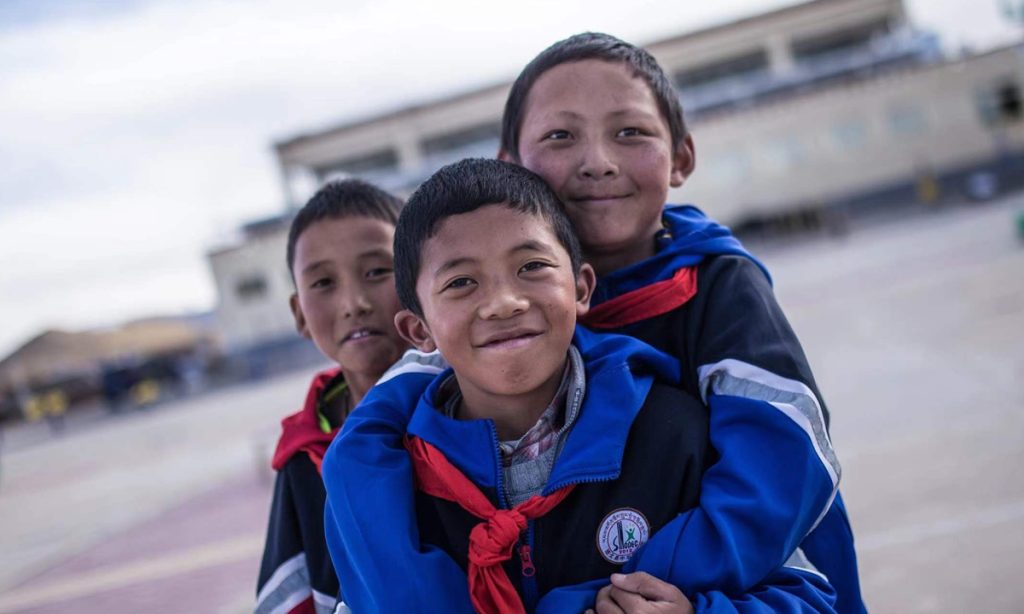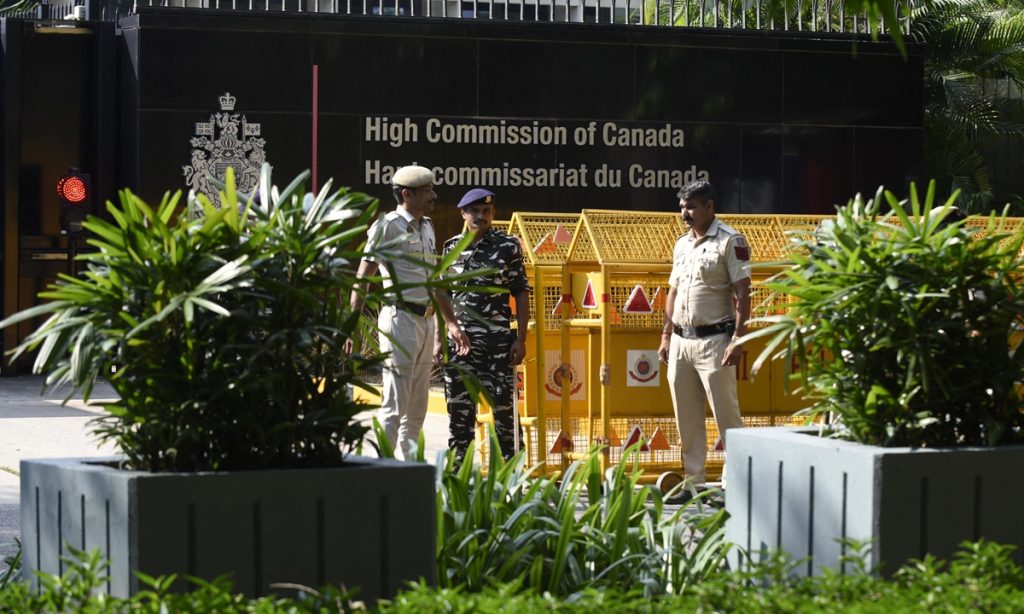Education rights of children living in extremely high-altitude pastoral region guaranteed thanks to assistive policies in Xizang

The Sinopec Primary School of Baingoin is dubbed as "the school closest to the sky."
The school, built by state-owned Sinopec as an aiding project, sits 4,700 meters above sea level in the small, remote county of Baingoin in Nagqu in Southwest China's Xizang (Tibet) Autonomous Region.
It bestows the most precious gift to children of pastoral region - education.
Despite the harsh and desolate local environment, the school functions as a complete educational complex, boasting a standard playground, nearly 30 modern classrooms, and dormitory buildings featuring glass greenhouse for students. The primary teaching building is constructed in the Tibetan architectural style, resembling a Tibetan palace.
Recently, during a visit to the school, a Global Times reporter saw both girls and boys chasing basketballs around the playground. One class was engaging in traditional Tibetan Guozhuang dance under the guidance of their teacher. As the sun began to set, the fragrance of Tibetan incense wafted through the glass greenhouse and greenery-filled teaching buildings, where in a classroom, some young students learned how to write the Chinese character for "answer."
In 2009, with the support of China Petrochemical Corporation (Sinopec Group), the construction of the Baingoin Sinopec Primary School began. It was officially completed and put into use in 2012, greatly motivating the enthusiasm of local pastoral families to send their children to school and contributing to the development of education in Baingoin county.
Initially, the school was designed to accommodate approximately 800 students and operate with a semi-boarding model.
"Because the students come from remote areas and their parents are often occupied with work, ensuring their safety and daily habits is essential," explained Ngawang Wangdu, the principal of Sinopec Primary School, told the Global Times.
However, as the initial capacity could not meet demand, the school successfully applied for a second phase of expansion from both the government and Sinopec headquarters, allowing for the accommodation of more students.
Presently, the school hosts 1,323 students, with 600 of them residing on the school premises.
"Lower-grade students are predominantly day students, while those in grades three to six primarily reside at the school," the principal said. "The school operates throughout the entire year despite summer or winter vacations, leading to students spending an extended time at the school."
A fourth-grade student, Padma Gyaltsen, appears slightly smaller than his peers. Fluently and articulately speaking Putonghua (Standard Chinese), he stated that his class schedule includes English, Chinese, mathematics, Tibetan language, music, information technology and physical education.
"I find the conditions here to be exceptional. The meals in the cafeteria are delicious, and the teachers help you solve any difficulties in life," he shared with the Global Times.
Padma Gyaltsen's family lives on a pastoral ranch, which takes two hours to reach by car from the county. Nowadays, pastoralists also place great importance on their children's education. Therefore, Padma Gyaltsen and his cousin were brought to the county town at an early age to attend kindergarten and primary school.
"Before boarding at the school, I resided in a rented apartment, and was taken care of by my aunt," he said.
After becoming a resident student, Padma Gyaltsen adapted well and achieved outstanding grades. During his free time, he enjoys playing basketball.
"I like Kobe Bryant the most, and when I heard about his passing, I cried for a day," he mentioned.
"I feel like all the boys and girls in my class are my friends, and my classmates are like my brothers and sisters," he added, expressing his desire to become a special police officer, similar to his uncle.
The school receives various forms of support, including national special policies, Xizang special education policies, and assistance from the China Petrochemical Corporation. This support is directed toward enhancing hardware facilities, equipment, and software improvement.
The school places a strong emphasis on student living conditions and safety management, implementing various measures, noted Ngawang Wangdu, the principal. Additionally, its boarding system provides an opportunity for students from economically disadvantaged families. Parents also understand the school's favorable policies and efforts, and there are no dropouts, he said.
After graduation, all students have a 100 percent placement rate in higher education, and outstanding students may have the opportunity to be enrolled into schools in Lhasa or other much more developed regions in China such as Beijing.
The school is dedicated to providing high-quality education while ensuring the safety and well-being of its students, all with the aim of achieving the goal of satisfying the educational needs of the local population, Ngawang Wangdu said.
Guillaume Guibe, a French engineer working for Sinopec in Beijing, visited the school in 2022 and shared his experience with Global Times. He expressed that he had initially envisioned children studying in tents but was pleasantly surprised by the actual conditions. He was even able to converse with a student in English.
"For the Xizang region, the third pole of our planet, miracles of nature stand everywhere, and the people here are also creating miracles," Guibe mentioned in his vlog.








